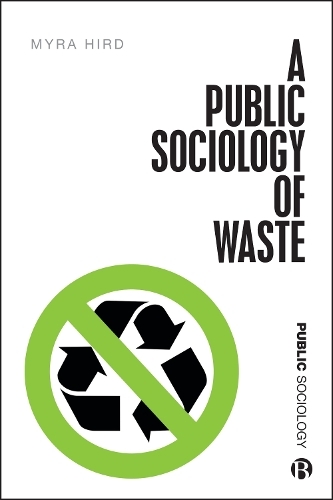Jeremy Williams's Blog, page 28
December 19, 2023
Decoupling is real. Is it enough?
The idea of decoupling is a central tenet of the world’s response to climate change. Greenhouse gases are tied to economic growth. The richer countries are, the more people tend to consume, the more energy they use, and so the higher the emisssions. So the best route to lowering emissions is to ‘decouple’ rising CO2 from rising prosperity. Build out clean energy, make things more efficient, eliminate waste and so on, so that growth can continue without the increasing damage to the climate.
N...
December 18, 2023
Insights from a sewing machine activist

There’s an unusual book that I wanted to highlight this week: Insights from the Big Picture Narrative of a Sewing Machine Activist, by Miranda Green. This isn’t a review exactly, for reasons that will become clear.
Miranda Green is a miliner, writer and activist based in Australia. A few years ago she got in touch to see if I was able to help with editing a collection of essays, and I said yes. We like hat-makers here in Luton, and I’ve always got time for people with interesting perspec...
December 16, 2023
What we learned this week
Protect Our Winters is a climate campaign organised by the outdoor gear industry. I hadn’t come across it before, but saw an ad for it on a bus-stop and looked it up.
I did a double take when reading that the first offshore wind farm had connected to the US grid this week. I knew it wasn’t a big thing, but I hadn’t realised there wasn’t any at all. Better late than never and let’s hope it booms from here.
Are young people more favourable towards degrowth? The answer isn’t entirely conclus...
December 15, 2023
After 28 years, the elephant has been named
A few years ago I clicked on a news headline and found that it wasn’t an article, it was a live news blog. The top line informed me that the chancellor had delivered his budget, and they would have “instant reax soon.” Even the word ‘reactions’ was apparently too long for our culture of immediacy.
It occurred to me at that point that what I valued in a commentator was not an instant reaction, but a considered opinion. And that’s why I’m writing about the end of COP28 at the end of the week. ...
December 14, 2023
To stop the boats, make it safe to stay
When parliament discussed the Rwanda plan this week ahead of voting on it, the Home Secretary and the shadow Home Secretary faced off across the dispatch box. As Yvetter Cooper spoke for Labour, James Cleverly apparently muttered “what’s your plan?” over 30 times at her like some kind of broken politician toy.
This is a recurring theme: forcibly deporting refugees to Rwanda is the only option. There is no alternative and nobody else has a plan. If you disagree, you must want open borders.
...December 13, 2023
Nine reasons to reject the Rwanda plan
Yesterday Parliament voted on emergency legislation to push forward its plan to send refugees to Rwanda. The government had been advised that their plan would breach international law because Rwanda is not a safe destination for refugees. The emergency law will give the government the right to say that it is. As the Conservative Lord Garnier put it, “it’s rather like a bill that has decided that all dogs are cats.” Nevertheless, not a single Conservative MP voted against the bill, and those that...
December 11, 2023
A Public Sociology of Waste, by Myra Hird

Sociology is the study of society and its behaviour. It’s a hybrid discipline that cross-pollinates discussions about politics, economics and culture. The addition of the word ‘public’ in the title here indicates a specific approach. As the name suggests, public sociology aims to speak to the general public rather than an academic audience.
Sociology has often been used for the public good, looking for insights into behaviour in order to improve lives. Myra Hird’s book is in that traditi...
December 9, 2023
What we learned this week
Geoff Mulgan in Prospect magazine writes about ‘the billionaire problem’, plutocracy, and the “extraordinary mismatch between billionaires’ pools of enormous wealth and the innumerable tasks in the world that require money.”
With 68% of buildings damaged, Gaza has now eclipsed WWII’s bombing of Dresden and Cologne to become one of the heaviest non-nuclear bombardments in history, says the FT.
Britain’s last opencast coal mine has closed. Now we wait to see if the company running it will fu...
December 8, 2023
The question of colonial emissions
When I give presentations about climate justice, one of my central themes is that climate change is unfolding in a historical context. It isn’t happening in a neutral world, but one that has been shaped by events. It is occurring within the ongoing legacy of colonialism, and the unequal power structures of empire are shaping the impacts of climate change and how we respond to them.
Carbon Brief have just published a really useful piece of work that I may well be drawing on for future talks, ...
December 7, 2023
The ‘normalising’ of extreme weather in India
“The new normal” is a phrase that often gets used in climate circles to describe the changing weather patterns the world is exploring. Big storms that might happen once every century now come around every decade. Heat records tumble so often that they’re hardly worth mentioning. The stability of the climate has been eroded, and change and unpredictability are what we have come to expect.
I’ve never used the phrase ‘new normal’ before, because it feels complacent to me. It’s too easy to say it...



